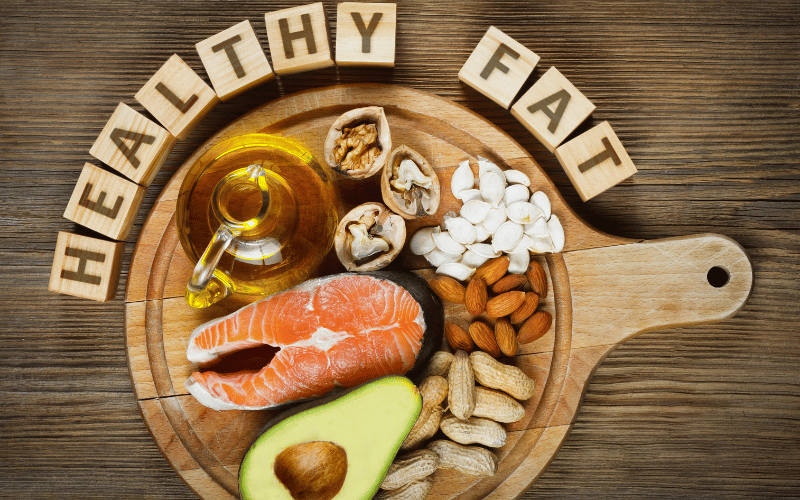Food 9: Healthy Fats

Fats, while essential for numerous bodily functions, are often a tricky territory for those with GERD. The more prolonged digestion process they require often means an increased risk of acid production and reflux. But here’s where the differentiation begins. Not all fats are created equal, and when it comes to GERD, the type of fat matters more than the quantity.
One of the standout sources of healthy fats is avocados. This creamy fruit is rich in monounsaturated fats, which not only support heart health but also are less likely to exacerbate GERD symptoms. Avocados offer the richness that many crave without the same reflux risk associated with saturated fats found in items like butter or fatty cuts of meat.
Moving from the creamy world of avocados, nuts like almonds, walnuts, and seeds such as flaxseeds also present a heart and GERD-friendly source of fats. However, moderation is vital. Overindulgence can have the opposite effect, leading to discomfort and potential reflux. Toasted, unsalted almonds or a sprinkle of flaxseed in a morning smoothie can make for a delightful and beneficial addition to the GERD-friendly menu.
Even within the bracket of ‘healthy fats’, it’s vital to be wary. For instance, while coconut oil is often touted for its health benefits, it’s also high in saturated fats and might not be the best option for GERD sufferers. Similarly, frying foods, even in healthier oils, can pose a reflux risk. The trick lies in understanding one’s triggers and making informed choices based on individual reactions.
Healthy fats demonstrate that GERD-friendly eating doesn’t mean a bland or restrictive diet. It’s about understanding the nuances, making swaps where necessary, and enjoying the richness and flavor these fats bring, without the accompanying discomfort of reflux. With the right choices, you get the best of both worlds: taste and health, all while keeping GERD at bay. (9)